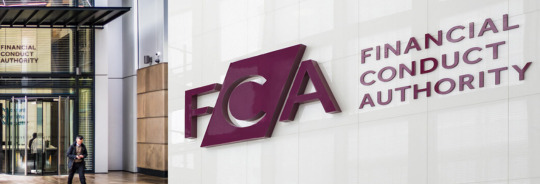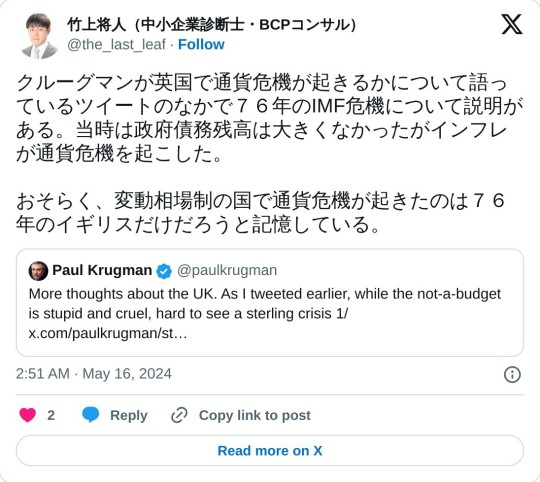#uk finance
Text
#online loans UK#short-term loans#borrowing tips#financial guidance#loan information#UK finance#credit insights#personal finance#online borrowing advice
0 notes
Text
Understanding the Challenges of Moving from LIBOR: Navigating the Tides

In the vast ocean of global finance, the London Interbank Offered Rate (LIBOR) stands out. It has long served as a crucial navigational beacon. Established in the mid-1980s, LIBOR quickly became the world’s most widely used benchmark for short-term interest rates. It’s similar to the financial world’s heartbeat. It underpins an estimated $350 trillion worth of financial contracts worldwide. These range from complex derivatives to simple home mortgages.
LIBOR represents the average interest rate for major global banks. They can borrow from one another in the international interbank market for short-term loans. LIBOR is published in five currencies: U.S. dollar, Euro, British pound, Japanese yen, and Swiss franc. It comes in seven different maturities ranging from overnight to one year. This provides a consistent, reliable gauge of the cost of unsecured borrowing in the London interbank market.
The importance of LIBOR in the financial system cannot be overstated. It serves as a reference rate for many financial products. These include syndicated loans, adjustable-rate mortgages, student loans, credit cards, and various types of derivatives. It’s the foundation of the global financial system. It influences borrowing costs throughout the economy. Moreover, it affects the finances of corporations, governments, and consumers alike.
However, LIBOR is the backbone of the financial world. Yet, it doesn’t come without its flaws. The financial world is preparing to navigate a future without it.
The Need for Transition from LIBOR

The journey towards a post-LIBOR world began with a series of unfortunate events. These events shook the financial world to its core. The LIBOR crisis erupted in 2012. It revealed that some banks had been manipulating the rate to their advantage. This led to a crisis of confidence in the benchmark. The scandal tarnished the reputation of LIBOR. It also highlighted its inherent vulnerabilities. One primary concern was that it was based on estimates and not actual transactions. This made it easier to manipulate.
The implications of the crisis were far-reaching. It led to billions of dollars in fines for the banks involved. Additionally, it casts a long shadow over the integrity of the global financial system. In response, it sparked a global conversation. The discussion centred around the need for a more robust and transparent alternative. This alternative needed to withstand the tests of market integrity and reliability.
How Everything Led to LIBOR’s End

In response to the crisis, regulatory bodies worldwide began pushing for a transition away from LIBOR. In the UK, the Financial Conduct Authority (FCA) made an announcement in 2017. It stated it would no longer ask or persuade banks to submit rates for LIBOR’s calculation after 2021. This announcement effectively set the clock ticking for the end of LIBOR.
The final nail in the coffin was in March 2021. The administrator of LIBOR, ICE Benchmark Administration, confirmed the termination dates for most LIBOR settings. It was announced that several LIBOR settings would cease after December 31, 2021. This included all the British pound, euro, Swiss franc, and Japanese yen settings. Additionally, the “one-week and two-month U.S. dollar settings” were included. The remaining U.S. dollar settings would cease immediately after June 30, 2023.
The announcement marked the beginning of the end for LIBOR. It set in motion a significant transition in global finance history. The transition from LIBOR is more than just a regulatory requirement. It’s a crucial step towards a stable and trustworthy financial system.
Challenges in the Transition from LIBOR

Navigating away from LIBOR is no small feat. The transition presents a multitude of challenges that financial institutions and market participants must overcome.
One of the most significant challenges is the complexity of replacing LIBOR in existing contracts, often referred to as “legacy contracts”. These contracts, which can extend beyond 2023, were drafted with LIBOR as the reference rate and often lack adequate provisions for the permanent removal of the benchmark. Modifying these contracts to replace LIBOR with a new rate is an enormous task, both legally and operationally, and raises the potential for legal disputes and market disruption.
The transition also involves the adoption of new risk-free rates (RFRs) that are fundamentally different from LIBOR. Unlike LIBOR, which reflects the credit risk of unsecured interbank lending, RFRs such as the Secured Overnight Financing Rate (SOFR) in the U.S. and the Sterling Overnight Index Average (SONIA) in the UK are nearly risk-free, as they are based on actual transaction data from secure lending markets. This shift from a credit-sensitive rate to a risk-free rate could have significant implications for the pricing and risk management of financial products.
Adding to the complexity is the absence of term structures in the new RFRs. While LIBOR is quoted for different maturities, most RFRs are overnight rates. The development of term rates based on RFRs is still in progress, and until these are widely available and accepted, the transition will remain a challenge.
The impact of the transition extends to various financial sectors and products. From securities, where LIBOR is deeply embedded, to syndicated loans and adjustable-rate mortgages that reference LIBOR, the transition will require significant adjustments. Market participants will need to adapt to new pricing mechanisms, risk management tools, and system changes, all while ensuring minimal disruption to financial markets.
Potential Solutions and Strategies for the Transition

Despite the challenges, the financial world is not walking without a light in this dark transition. Several solutions and strategies are being developed and implemented to navigate the shift from LIBOR. A key part of the solution lies in the development of alternative RFRs.
In the U.S., the Federal Reserve has endorsed the Secured Overnight Financing Rate (SOFR) as the replacement for U.S. dollar LIBOR. SOFR is based on actual transactions in the Treasury repurchase market, making it a more robust and reliable benchmark.
In the UK, the Bank of England has identified the Sterling Overnight Index Average (SONIA) as the preferred alternative to the sterling LIBOR.
These RFRs, along with others being developed around the world, are set to play a pivotal role in the post-LIBOR era.
Another crucial strategy for the transition is the incorporation of robust fallback language in financial contracts. Fallback provisions outline the steps to be taken and the replacement rate to be used if LIBOR ceases to exist. The International Swaps and Derivatives Association (ISDA) has developed a standard fallback protocol, which many market participants have agreed to, providing a clear path for the transition in derivative contracts.
Technology and data also hold the key to managing the transition effectively. Financial institutions are leveraging technology solutions to identify and analyze LIBOR exposure in their contract portfolios. Advanced analytics, fintech solutions and AI are being used to extract and review contractual terms at scale, enabling institutions to manage the transition in a more efficient and risk-controlled manner.
The transition from LIBOR is undoubtedly a complex and challenging process. However, with the right strategies and solutions in place, the financial world can successfully navigate the shift and emerge with a more transparent and robust benchmarking system.
The Impact of the Transition on Global Financial Markets

The ripples of the transition from LIBOR are being felt across global financial markets. This is leading to significant changes and potential disruptions.
One of the most profound impacts is the change in market risk profiles. The shift from LIBOR, a credit-sensitive rate, to nearly risk-free rates changes the dynamics of interest rate risk.
Financial institutions will need to review their risk management strategies. This is because the new rates do not reflect bank credit risk. These rates could also behave differently from LIBOR under various market conditions.
The transition also has a significant effect on interest-rate products and securities. LIBOR is deeply embedded in these markets. Its replacement will require adjustments in pricing, valuation, and risk management of these products. For instance, the shift to SOFR in the U.S. will have effects. It could affect the pricing of interest rate swaps. This is because SOFR tends to be lower than LIBOR due to its nearly risk-free nature.
Moreover, the transition carries the potential for market disruption and legal disputes. The modification of legacy contracts to replace LIBOR could be problematic. It could lead to disagreements over the choice of replacement rate. The adjustment spread might also be a point of contention. This could potentially result in lawsuits. There’s also the risk of market fragmentation. Different jurisdictions or market segments might choose different replacement rates.
The Role of Regulatory Bodies and Financial Institutions in the Transition
Read the full article at: https://dsb.edu.in/understanding-the-challenges-of-moving-from-libor-navigating-the-tides/?utm_source=Tumblr&utm_medium=Tumblr&utm_campaign=Tumblr+LIBOR
#libor#benchmark#uk finance#loans#tech#fintech#india#blockchain#jobs#banking#chatgpt#education#gpt 4#ai#google#investment#altcoin#crypto#defi
0 notes
Text
Demystifying Credit Checks: How They Impact Loan Comparison
When comparing loan options, understanding the role of credit checks is crucial. Lenders often perform credit checks to assess borrowers' creditworthiness and determine the terms of the loan. These credit checks can have a significant impact on your loan comparison process. In this blog post, we will demystify credit checks, explain how they influence loan comparison, and provide insights into managing your credit to secure the best loan offers.
Understanding Credit Checks : Credit checks involve lenders accessing your credit report from credit bureaus to evaluate your credit history, credit score, and financial behavior. They help lenders assess the risk of lending to you and determine the terms, interest rates, and loan amounts they are willing to offer. There are two types of credit checks: soft inquiries (non-impactful) and hard inquiries (impactful). Soft inquiries are used for informational purposes, while hard inquiries are recorded on your credit report and can affect your credit score temporarily.
Impact on Loan Comparison: Credit checks play a vital role in loan comparison. They directly influence the interest rates, loan terms, and loan amounts offered by lenders. Lenders typically offer better terms and lower interest rates to borrowers with good credit scores and a positive credit history. When comparing loans, borrowers with higher credit scores are more likely to qualify for lower interest rates and favorable terms, saving money in the long run. On the other hand, borrowers with lower credit scores may face higher interest rates or stricter loan terms. It's important to consider how credit checks and your credit score will impact the affordability and overall cost of borrowing when comparing loan options.
Managing Your Credit: To improve your chances of securing better loan offers, it's important to manage your credit effectively. Start by reviewing your credit report for any inaccuracies or errors. Pay your bills on time, reduce your credit card balances, and avoid taking on excessive debt. Avoid making multiple loan applications within a short period, as each application can result in a hard inquiry and potentially lower your credit score. Instead, focus on targeted applications based on thorough research and comparison. Additionally, consider using credit monitoring services to stay updated on your credit status and make improvements where necessary.
Strategies for Loan Comparison: When comparing loans, be mindful of lenders who offer personalized interest rates based on creditworthiness. Some lenders may pre-qualify you or provide rate estimates without impacting your credit score. Utilize loan comparison tools or approach lenders for pre-qualification to get a better understanding of the rates and terms available to you. Compare loans with similar terms and request personalized loan quotes from multiple lenders to ensure accurate comparisons. Pay attention not only to interest rates but also to the APR, repayment terms, fees, and additional features offered by each lender.
Credit checks have a significant impact on loan comparison. Understanding how credit checks work, their impact on loan terms, and managing your credit effectively can help you secure better loan offers. Maintain a good credit score by managing your credit responsibly and reviewing your credit report regularly. When comparing loans, consider lenders that offer personalized interest rates based on creditworthiness and utilize loan comparison tools for accurate comparisons. By demystifying credit checks and incorporating credit management strategies, you can make informed decisions and secure the most favorable loan options.
#finance#payday loans#bad credit loans#loanrepayment#financial#business loan#credit score#credit check services#personal loans#credit#loan#united kingdom#england#britain#london#uk news#uk finance#apr#annual percentage rate#compare loans#banking#banks#bank
1 note
·
View note
Link
Recently, the ICC United Kingdom has reported launching a new drive to enhance the UK finance industry against the adverse effects of duplicate financing fraud.
The Centre for Digital Trade and Innovation (C4DTI)operated initiative will use ICC United Kingdom’s convening abilities to convey this leading project under the C4DTI’s “Shutting Fraudsters out of Trade” workstream in association with MonetaGo.
Duplicate Financing is defined as a fraudulent act where fraudsters avail multiple funds for the same transaction several times. In the present scenario, a fraudster can visit various banks and get the same transaction financed, without letting the other banks know or having them cross-check with the same.
Guidelines related to confidentiality inhibit the banks from disclosing or sharing information on deals they have financed with other banks, creating a hopeless situation that fraudsters take advantage of to get funds for the same transaction multiple times.
Read more: https://www.emeriobanque.com/news/icc-uk-introduces-initiative-to-cope-duplicate-finance
#Digital Trade and Innovation#UK finance#ICC United Kingdom#financial services globally#global trade finance
0 notes
Text
Bank of England announces additional measures to support market functioning (W/C 3.10.22)
The following is a summary and explanantion of the Bank of England's recent announcment.
A central bank has the responsibility of maintain financial stability within a country. The Bank of England (BoE) is England’s central bank. The UK has faced great financial instability (a fall in the value of the pound, and increase in interest rates) following the reformation of the UK government and subsequent changes to tax policies. Therefore, the BoE has taken action to restore financial stability.
From the 28th of September 2022, the BoE has purchased long-dated gilts.
Gilts are UK government bonds. A government bond is government debt. UK government bonds are known as gilts.
A central bank will purchase government bonds, which will increase the money supply in the UK as they exchange money for the bonds. . Large financial institutions (FIs) (like banks) hold gilts, which the BoE will exchange for money. With more money supplied into the economy, businesses and people have more money to spend. This is intended to keep the exchange of goods and services going.
A significant way that his money reaches households and businesses is through loans. With more money, these FIs can give out more loans. A loan is a liability: a financial responsibility to pay money. With a loan, a business person can expand their business, which has a impact on the wealth of the workers and customers: a liability driven investment has been made.
The BoE is now announcing:
To steadily increase the continued purchase of gilts. This should steadily increase the money supply and liability driven investment (as explained above).
Expand available collateral. Collateral is money (in this case, but can be another asset) which is held to replace money lost due to a loan not being repaid. By expanding available collateral, the BoE enables FIs to give out more loans because FIs will now have increased collateral which they can claim if they don’t get their money back. With more loans lent out, more money is in the hands of businesses and people, so goods and services can continue to be exchanged.
(in this explanation, I have not summarised the regular Indexed Long Term Repo operations)
0 notes
Text
someone official on bbc news this morning saying that energy and gas bills ‘needed to increase or the companies getting them would go out of business’
no the fuck they wouldn’t???

extremely poor taste on his part to listen to a room full of vulnerable older people crying and saying they don’t know how they’re going to survive this winter, then come out and say ‘well the companies making record profits in the billions HAVE to charge you this much, there’s no other option.’
#solution: guillotine.#it’s been forecast to increase to about 4250 in january and i’ve heard rumours of it rising AGAIN to 6000 in april#and still afaik both candidates for pm refuse to even consider a windfall tax#because god forbid the megarich energy companies that finance and vote for the tory party not be pleased at every occasion#uk politics
1K notes
·
View notes
Text
If we owe George Osborne anything, it is irrefutable empirical evidence that using the analogy of a credit card for a nation’s budget (along with inane “belt tightening” and “fixing the roof when it is sunny” metaphors) is a terrible basis for prudent fiscal policy. It is true that the Tories will leave scorched earth behind for the next government, with a budget dripping in red ink and a pitiful level of investment in the technologies and services the UK needs to escape a long-term slump. But this is precisely the reason why Labour must reject the austerian urges that, inevitably, spring from the credit card analogy.
[...]
The state’s budget is nothing like a credit card. As chancellor of the exchequer, your (tax) income is highly dependent on your (public) spending. Limit your spending and you have limited your income too. This is why the more Osborne slashed public spending in the 2010s, the more money he needed to borrow. By adopting the “maxed credit card” narrative, Reeves endorsed Osborne’s flawed logic and, indirectly, absolved the Tories for the wanton damage they have inflicted on a generation of Britons.
Austerity, and the credit card analogy that provides its thin veneer of logic, is not just bad for workers and people in desperate need of state support during tough times; it also depresses investment. By hastening the stagnation of a society’s aggregate income, it signals to businesses that they would be mad to put money into building up the capacity to produce the output that society is too impecunious to buy. That’s how austerity undermined investment in Britain and that’s how it will annul Labour’s ambition to draw in private green investments, now that Reeves has ditched her modest green public investment plan, replacing it with wishful thinking that the private sector will, magically, make up the difference.
12 notes
·
View notes
Text

Day 2023, 6 January 2024
#London#Canary Wharf#citi#citigrouo#skyscraper#canada square#architecture#offices#finance#financial#England#UK
17 notes
·
View notes
Text
Watching the fit note speech made by the UK PM. Listen I don't really consider myself disabled. Technically I do wear glasses and have clinical depression, but I am able to function like the average person, perhaps just a little more quieter, emotional, and only seems to perk up during discussions of metal and electronic music.
But after watching that, there are definitely people in the UK government who would definitely MAiD me. It's weird.
I'm used to the angst of being marginalized as a contradictory lesbian or whatever. But like (I'm not saying the US is the bastion of mental health. There is DEFINITELY stuff going on with me that isn't being addressed.) I (personally) was able to find support for when my depression and GAD got too much, with the UK it seems like if I was in the same situation, they would leave me to rot.
#THE SJWS WEREN'T LYING DISABILITY IS A SOCIAL CONSTRUCT#UK politics#ableism#'If you can't work in finance. die ig'- most powerful man on bass island
4 notes
·
View notes
Text
I decided to check out how to apply for Norwegian uni and is it really as fucking easy as logging into a website, choosing the courses you want and hitting submit? That sounds so fake
#i wanna stay in japan for another year so i didn't go as far as pressing submit#but the uk process has you filling out your full educational background and a 47-line personal statement#plus you need 2 references and you need to tell them how you intend to finance your studies#so i was curious as to what information i'd have to gather/what i'd have to prepare but it was basically nothing???#anyone who's studied in norway pls tell me more about the process bc this can't be it
4 notes
·
View notes
Text
We got good news in the sense that my sister has been awarded a disability payment - after 7 nos from the british system she got a yes from the exclusively scottish one. Sadly we've had to spend most of it on rent and essentials like basic groceries so we're kind of back to square one but holy shit. Little miracles.
7 notes
·
View notes
Text
i really really want to move in with my wife i miss her... but i donttt have tha money to fly there.... 😓😓
#i have been more and more worried about my living situation financially lately#i live with my brother for now but it was never supposed to be permanent... i only planned on staying until graduation or so#and i feel guilty cuz i don't really make enough money to be able to help with finances n stuf#i don't know. i always planned on moving back to 🇬🇧 because i did get a potential job opportunity there#but i also dont think i can live alone so that's another issue. and all of my uk friends are still in school#so i don't want to burden them more#aahhh i just wished i could live with my wife it would be the best option for both of us waahh#why are planes so expensivee
2 notes
·
View notes
Text
The 45p Rate (W/C 3.10.22)
This week, at the Conservative Party Conference, Kwasi Kwarteng, Chancellor of the Exchequer, announced that they will no longer scrap the 45p rate, that was to be a tax reduction for people earning more than £150,000 a year.
On the 23rd of September 2022, the Conservative party announced the Mini Budget.
A normal budget released by the UK government constitutes the spending plans and means to raise revenue at the start of the financial year. A budget must be scrutinised by parliament before it is approved and written into law. On the other hand, the acting government has the ability to produce a budget before the start of the financial year, without parliamentary scrutiny. This is typically undertaken for emergency measures. The Mini Budget was a sort of emergency budget, produced in the middle of the financial year, after a new Prime Minister was instated outside of the election cycle, alongside a new cabinet- an unusual circumstance which could require an emergency budget.
Nevertheless the Mini Budget of 2022 holds economic significance because it is the biggest package of UK tax cuts seen in half a century: it amounted to around £45bn of tax reductions for people and businesses (which also means a £45bn reduction in revenue received by the government, so a £45bn reduction in funding for public services, e.g. schools and highway maintenance).
A notable, controversial aspect of the Mini Budget was that it had more generous benefits for the wealthiest individuals in UK society. Particularly, the 45p rate was going to be abolished.
Anyone earning more than £150,000 a year pays 45p for every additional £1 they earn above that threshold. Without that rate, the highest tax bracket would have been 40p paid on every £1 earned over £50,270. This cut in tax for the highest earners would have enabled them to take home an additional £10,000 per year, on average.
Generally, the response to the Mini Budget announcement had been negative: the value of the pound fell below £1.05 against the US dollar, and the cost of borrowing for the UK government increased (a fall in confidence that a government will pay back its debt is reflected in a higher cost for it to borrow).
With general negative feedback to scrapping the 45p rate, on Monday, the 3rd of October 2022, the Conservative government announced that it will no longer go ahead with the tax cut.
Almost two weeks since the Mini Budget was announced, and less than a week since the U-turn on the new tax cut, the value of the pound is re-approaching pre-Mini-Budget levels (>£1.10/1$). Tax reductions from the Mini Budget (as they stand, although they may change), are due to reduce government revenue by £43bn now, saving £2bn in revenue for the public budget specifically due to no longer abolishing the 45p tax rate.
Making historic tax announcements, and then doubling back on them has invoked mixed reactions: whilst some praise the conservative party for being able to respond to public sentiment, others criticise the party for being indecisive, with a lack of true strategy.
1 note
·
View note
Text
Make Taxation Theft Again Shirt
Championing Liberty: Make Taxation Theft Again Shirt
Make Taxation Theft Again Shirt, Sweatshirt, Hoodie And More.
Description: Elevate your voice for freedom with our Make Taxation Theft Again Shirt. Crafted with care and designed for both comfort and style, this shirt isn't just clothing—it's a declaration. Made from premium materials, it ensures durability while making a powerful statement against unjust taxation policies.
Store Here:
https://www.usatrendyshirt.com/make-taxation-theft-again-shirt

Introduction: Join the movement for individual sovereignty and fiscal accountability with our Make Taxation Theft Again Shirt. In a world where taxation often feels like an infringement on personal liberties, wearing this shirt signifies your commitment to challenging the status quo. With its bold design and superior quality, it's more than just apparel—it's a symbol of resistance. Let your attire speak volumes and stand up for what you believe in with the Make Taxation Theft Again Shirt.
#taxation#tax#taxes#business#finance#taxrefund#usa#america#canada#uk#love#newyork#california#travel#fashion#Make Taxation Theft Again Shirt
2 notes
·
View notes
Text
EggsInvest vs Zoopla: Your Top Property Portal Comparison
Real estate investment is a powerful tool for growing your wealth, offering opportunities to generate passive income and build long-term equity. EggsInvest vs Zoopla – Discover the perfect property portal for your UK real estate investment needs.
But while the real estate market offers immense potential for financial growth, navigating the landscape can be daunting, especially with the abundance of property portals vying for your attention.
EggsInvest: Your Gateway to Property Investment Success

Understanding Your Investment Needs
Investing in real estate requires a clear understanding of your objectives and preferences. Whether you’re looking for London sale apartments, suburban homes, or commercial properties, EggsInvest provides a comprehensive platform tailored to your needs.
Navigating the Property Portal Maze: EggsInvest vs Zoopla
When it comes to property investment portals in the UK, two names stand out: EggsInvest and Zoopla. Let’s delve into a comparative analysis to help you make an informed decision.
EggsInvest: Your Personalized Investment Portal
EggsInvest distinguishes itself by offering a personalized approach to property investment. Unlike larger portals like Zoopla, EggsInvest prioritizes quality over quantity, ensuring that your listings receive the attention they deserve.
Investment Focus: Quality Over Quantity
While Zoopla boasts a vast database of properties, EggsInvest takes a different approach. By curating listings and focusing on quality, EggsInvest ensures that every property showcased on its platform meets high standards, attracting serious investors and potential buyers.
Targeted Exposure for Maximum Impact
In the competitive landscape of real estate, exposure is key. EggsInvest understands the importance of targeted exposure, leveraging strategic marketing tactics to showcase your property to the right audience.
Local Expertise, Global Reach
EggsInvest combines local expertise with a global reach, offering unparalleled insights into the UK property market. Whether you’re a seasoned investor or a first-time buyer, EggsInvest provides the guidance and support you need to make informed decisions.
Your Property, Your Platform: EggsInvest Advantage

Exposing Your Property to a Larger Audience with EggsInvest
By choosing EggsInvest as your property listing portal, you gain access to a targeted audience of investors and buyers who are actively seeking properties like yours. With strategic marketing initiatives and personalized support, EggsInvest ensures that your property stands out in a competitive market.
Conclusion: EggsInvest – Your Partner in Property Investment
In the journey of real estate investment, the choice of property portal can make all the difference. With EggsInvest, you’re not just gaining access to a platform – you’re gaining a partner committed to your success. Experience the EggsInvest advantage and unlock the full potential of your property investments today.
#finance#invest#investment portal#property listing uk#investors#investment#real estate investing#eggsinvest
3 notes
·
View notes
